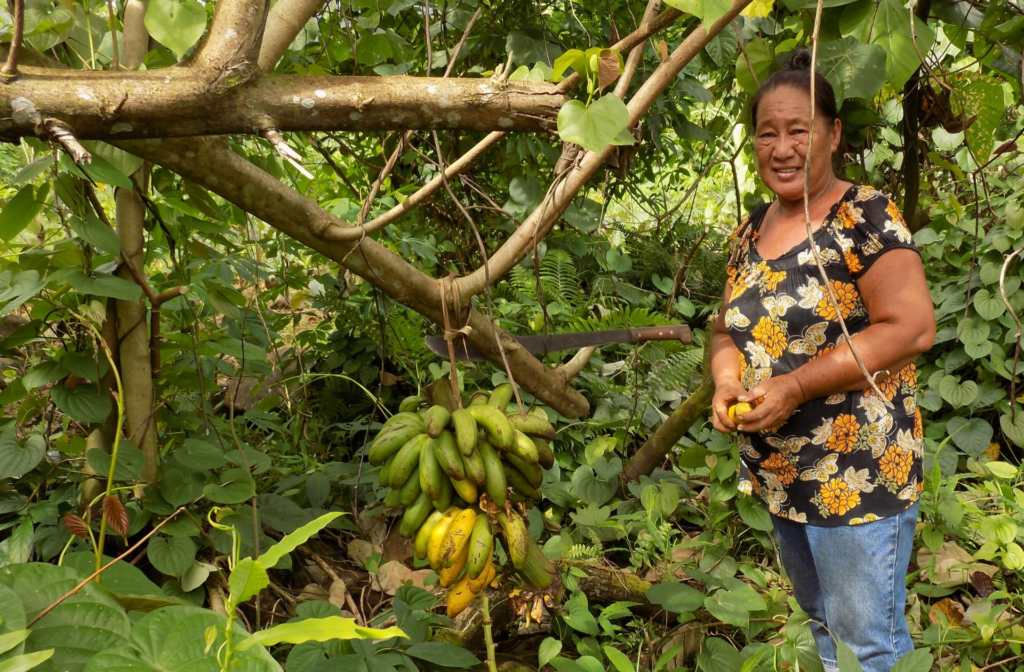
Over the last few months, likely each and every one of us has felt pushed to the limits of our abilities to cope with the current global situation. Even for those of us for whom lockdown is no more than an inconvenience, this moment has undoubtedly led to more self-reflection, and an appreciation of the human capacity to adapt to life-changing events.
This kind of resilience is something that many people around the world who are at the frontlines of climate change know a lot about.
If we understand resilience as the ability to learn, adjust, and incorporate risk and changing environments into decisions about the future, then resilient systems and communities are flexible, redundant where needed, diversified, robust, resourceful and connected, and transparent and accountable to each other.
Whether it is the Ebola outbreak, armed conflicts, or devastating cyclones, Global Greengrants Fund has supported grassroots-led strategies to ‘#BuildBackBetter‘ for nearly 30 years. Much like right now, after each of these shocks people were looking to rebuild our societies and economies in ways that anticipate the future, tackle the inequalities that these crises have exposed, and strengthen communities over the long-term. Here are a few things we have learned through our work supporting resilience-building, guided by our grassroots partners and advisors.
At its core, resilience-building is relationship-building. Relationships are our most important social capital. If the current lockdown situation has shown us anything, it is that people need other people. We need others for our mental and physical wellbeing, and to help each other especially where other institutional support, such as governments and the economic system, is absent.
Resilience-building therefore invests in relationships, including those between older and younger members of communities. Cultural knowledge transfer and intergenerational learning are important strategies to build community resilience. Much like we have seen in the current moment in time, finding solutions to crises is often not about a new idea or a novel technology, but it is about cultural shifts, and new thinking in existing systems.
For example, in Micronesia, Global Greengrants supported a group called Waa’gey to work with both elders and youths to use trees felled by storms as an opportunity to teach traditional canoe-building, clean up after a climate disaster, and transfer important Indigenous knowledge from one generation to the next. For the community, turning the fallen trees into canoes was an important symbol of hope coming out of a time of destruction. A small grant helped strengthen social cohesion and the ability to govern natural resources at the same time.
In response to the current pandemic, our partner Samdhana Institute recently supported a vocational technology school in Indonesia that has decided to produce hand sanitizer and distribute the sanitizer for free in their village. Rather than wait for external handouts that may or may not come, local people are taking initiative. Employing a resilience framework, they will not only help their immediate village, but also share their technology to support others to replicate this approach, and become local producers of hand sanitizer for distribution in their own communities.
We can foster this kind of resilience through our grantmaking, with flexible funding that supports communities to implement their own solutions. Investment in people and relationships, and intentional learning and exchange, are key strategies for resilience building, as they lead to strengthened local governance and participation, cultural knowledge transfer and inter-generational learning.
In this moment in time, it is up to all of us to define what kind of world we want to emerge into when we come out of lockdown. How will we think about risk, in particular the risk of climate catastrophe? Are we going to be able to prioritize the collective good and appreciate the power of our relationships? Will we wait until it is too late, like we did with the current pandemic, or will we adapt and foster our resilience to future shocks? Let’s learn from those who are already experiencing the climate crisis. It may well be our final chance to #BuildBackBetter.
This post was first published by Global Greengrants Fund on May 14, 2020.

Eva Rehse is the Executive Director of Global Greengrants Fund UK. She is a member of the European Steering Group of the EDGE Funders Alliance, the Alliance Magazine editorial advisory board, and co-convenor of the international funders network of the Association of Charitable Foundations.